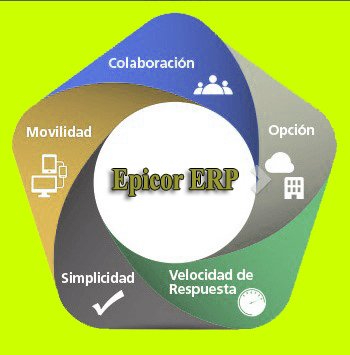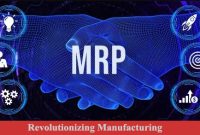Epicor ERP: Transforming Business Operations for the Future
In the modern business landscape, companies must adapt to rapidly changing market conditions, consumer demands, and technological advancements. Enterprise Resource Planning (ERP) systems have become essential for businesses seeking to integrate their processes, improve efficiency, and maintain a competitive edge. Among the leading ERP solutions, Epicor ERP stands out for its comprehensive features, flexibility, and industry-specific capabilities. This article delves into the core aspects of Epicor ERP, its benefits, key features, and the transformative impact it can have on businesses.
What is Epicor ERP?
Epicor ERP is a robust, scalable ERP solution designed to meet the diverse needs of businesses across various industries, including manufacturing, distribution, retail, and services. It integrates key business processes into a single system, providing real-time visibility and control over operations. Epicor ERP supports financial management, supply chain management, production management, project management, and customer relationship management, among other critical functions.
Key Features of Epicor ERP
- Financial Management: Epicor ERP offers a comprehensive suite of financial management tools, including general ledger, accounts payable and receivable, budgeting, and financial reporting. These tools provide real-time financial insights, helping businesses maintain accurate financial records and ensure regulatory compliance.
- Supply Chain Management: Efficient supply chain management is crucial for any business. Epicor ERP provides tools for inventory management, procurement, order processing, and supplier relationship management. These tools help optimize inventory levels, improve supplier collaboration, and ensure timely delivery of products.
- Production Management: Epicor ERP supports various manufacturing processes, including make-to-order, make-to-stock, and engineer-to-order. It offers modules for production planning, scheduling, shop floor control, and quality management, ensuring efficient and high-quality production.
- Project Management: For businesses that handle complex projects, Epicor ERP offers project management tools that include project planning, resource allocation, cost tracking, and progress monitoring. These tools help manage projects effectively, ensuring they are completed on time and within budget.
- Customer Relationship Management (CRM): Epicor ERP includes CRM modules that manage customer data, sales, marketing, and customer service activities. These tools help build stronger customer relationships, improve sales performance, and enhance customer satisfaction.
- Human Capital Management (HCM): Managing human resources is simplified with Epicor ERP’s HCM module. It covers employee information, payroll, recruitment, performance evaluations, and benefits administration, helping streamline HR processes and improve employee engagement.
- Business Intelligence and Analytics: Epicor ERP provides advanced reporting and analytics tools that offer valuable insights into business performance. It features customizable dashboards and real-time reports, enabling businesses to monitor key performance indicators (KPIs) and make data-driven decisions.
- Integration and Scalability: Epicor ERP integrates seamlessly with other business systems and applications, ensuring a unified and cohesive IT environment. It is also highly scalable, allowing businesses to add new modules and functionalities as they grow.
Benefits of Epicor ERP
- Increased Efficiency and Productivity: By automating routine tasks and integrating various business processes, Epicor ERP significantly enhances efficiency and productivity. It reduces manual data entry, minimizes errors, and ensures smooth business operations.
- Improved Data Accuracy and Accessibility: Epicor ERP centralizes data from different departments, ensuring accurate and up-to-date information is available to all stakeholders. This improves data consistency and accessibility, leading to better decision-making.
- Cost Savings: Epicor ERP helps identify inefficiencies and areas where costs can be reduced. By optimizing resource utilization, reducing operational costs, and improving inventory management, businesses can achieve significant cost savings.
- Better Decision-Making: Access to real-time data and advanced analytics provides businesses with valuable insights into their operations. This enables informed decision-making, allowing businesses to respond quickly to changing market conditions and make strategic adjustments.
- Enhanced Collaboration: Epicor ERP facilitates better communication and collaboration across different departments. By providing a centralized platform for sharing information, it ensures that everyone is on the same page, leading to more cohesive and efficient operations.
- Regulatory Compliance: Epicor ERP is designed to help businesses comply with regulatory requirements and industry standards. It provides tools for accurate financial reporting, tax calculations, and audit trails, ensuring compliance and reducing the risk of penalties.
- Scalability and Flexibility: As businesses grow, their operational needs become more complex. Epicor ERP is scalable and flexible, allowing businesses to add new modules and functionalities as needed. This ensures that the software can adapt to changing business requirements.
Implementing Epicor ERP
Implementing Epicor ERP requires careful planning and execution to ensure a smooth transition and maximize its benefits. Here are the key steps involved:
- Needs Assessment: Conduct a thorough assessment of your business processes and identify areas where Epicor ERP can add value. This will help you select the right features and modules that align with your business goals.
- Project Planning: Develop a detailed implementation plan, including timelines, milestones, and resource allocation. Assign a project manager to oversee the implementation process and ensure that all stakeholders are aligned.
- Data Migration: Plan and execute the migration of existing data to the new ERP system. Ensure data accuracy and completeness to avoid issues during the transition. Data cleansing and mapping are crucial steps in this phase.
- Customization and Configuration: Customize and configure Epicor ERP to fit your unique business processes. This may involve setting up specific workflows, user roles, and permissions. Ensure that the system is tailored to meet your operational needs.
- Training and Change Management: Provide comprehensive training to employees on how to use the new ERP system. Effective change management strategies are crucial to ensure employee buy-in and minimize resistance. Communicate the benefits of the new system and offer ongoing support.
- Testing and Go-Live: Conduct thorough testing of the ERP system to identify and resolve any issues. This includes system integration testing, user acceptance testing, and performance testing. Once the system is tested and approved, go live and monitor the system closely during the initial phase.
- Post-Implementation Support: Provide ongoing support and maintenance to ensure the smooth operation of the ERP system. This includes regular updates, troubleshooting, and user support. Continually assess the system’s performance and make necessary adjustments.
Epicor ERP for Industry-Specific Solutions
Epicor ERP is not a one-size-fits-all solution; it is designed to cater to the specific needs of different industries. Here’s how Epicor ERP addresses industry-specific requirements:
- Manufacturing: For manufacturers, Epicor ERP offers features such as production planning, quality control, and shop floor management. It supports various manufacturing modes and helps optimize production processes, reduce waste, and ensure product quality.
- Distribution: In the distribution sector, Epicor ERP provides tools for inventory management, order processing, and supplier management. It helps distributors manage their supply chain more effectively, improve order accuracy, and enhance customer satisfaction.
- Retail: Retail businesses benefit from Epicor ERP’s capabilities in sales management, inventory control, and customer relationship management. It helps retailers streamline their operations, manage their inventory efficiently, and provide a better shopping experience to customers.
- Services: For service-based businesses, Epicor ERP offers project management, resource planning, and customer service tools. It helps service providers manage their projects more effectively, allocate resources efficiently, and improve service delivery.
Conclusion
Epicor ERP is a powerful tool that can significantly enhance efficiency, productivity, and profitability in business operations. With comprehensive features for financial management, supply chain management, production management, project management, and more, it provides the necessary tools to optimize processes and achieve operational excellence. By carefully selecting the right ERP system and planning a strategic implementation, businesses can unlock their full potential and maintain a competitive edge in the market.
Embracing Epicor ERP is not just about keeping up with technological advancements; it’s about transforming your business into a more agile, responsive, and efficient operation. As the business landscape continues to evolve, those who leverage the power of advanced ERP solutions like Epicor will undoubtedly lead the way in innovation and success. By integrating core business processes, providing real-time insights, and enhancing collaboration, Epicor ERP enables businesses to achieve new levels of performance and drive sustainable growth.
Investing in Epicor ERP is a strategic decision that can propel your business forward, streamline operations, and improve overall efficiency. With the right approach to implementation and ongoing support, Epicor ERP can become a cornerstone of your business strategy, delivering significant returns on investment and positioning your company for long-term success.




